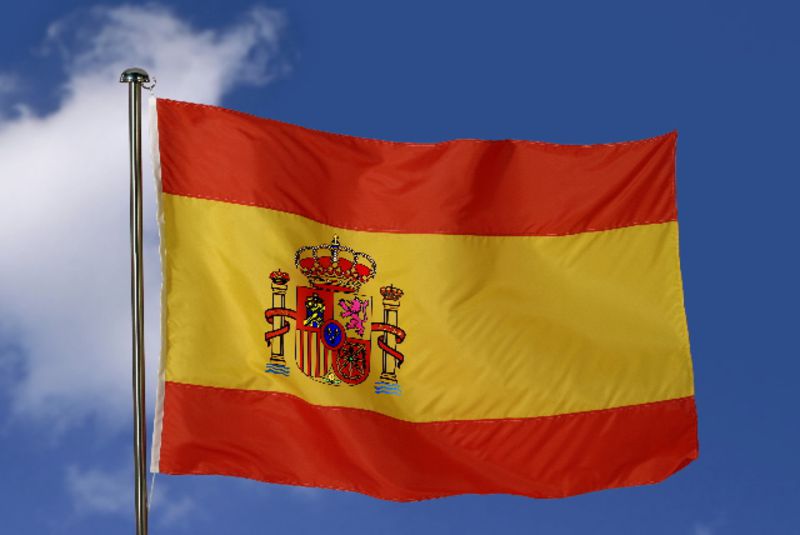Will the IMF become the enemy in Europe's bed?
Ralitsa Kovacheva, March 25, 2010
 A day before the spring European Council, the rumble is still hollow, and a thin spirt of smoke is going out of the crater. Although the final decisions would be taken by the Council in June, the next 2 days seem to draw clearly the front lines on the key issue: how to achieve coordination and control of EU member states on economic policies.
A day before the spring European Council, the rumble is still hollow, and a thin spirt of smoke is going out of the crater. Although the final decisions would be taken by the Council in June, the next 2 days seem to draw clearly the front lines on the key issue: how to achieve coordination and control of EU member states on economic policies.
So far one thing is clear: there is a conflict both in the positions of some of the member states and the Commission and between separate member states. The Commission was fast to impose its plans for a tighter coordination and surveillance and will propose to EU leaders to approve such a measure in the framework of the Europe 2020 strategy for sustainable growth and employment. According to a draft of the document, quoted by the EurActiv, "coordination at the level of the euro zone will be strengthened in order to address the challenges the euro area is facing".
The document sets June 2010 as a deadline for the European Commission to present its proposals, which should fully implement "the new economic coordination instruments offered by the Lisbon Treaty". Article 136 of the Lisbon Treaty is explicitly pointed out because it stipulates that the Council of Ministers of the 27 member states can adopt measures with regard to eurozone members so as to "to strengthen the coordination and surveillance of their budgetary discipline" and "to set out economic policy guidelines for them".
An urgent adoption of such measures as in the Europe 2020 strategy for the next 10 years, became necessary because of the Greek crisis and the fears that it might spill out to other eurozone member states. In the same time the German proposal for a  European Monetary Fund is also advancing fast. Germany is not ruling out a change in the Lisbon Treaty, aimed at securing the possibility a failed member state to be sanctioned and even expelled from the eurozone. In the model of the institution, proposed by Daniel Gros from the Centre for European Policy Studies and Thomas Mayer with the Deutsche Bank, aside from a mechanism for assistance to countries in trouble, several other procedures are envisaged for bankruptcy and for expulsion of states which are in constant breach of fiscal discipline.
European Monetary Fund is also advancing fast. Germany is not ruling out a change in the Lisbon Treaty, aimed at securing the possibility a failed member state to be sanctioned and even expelled from the eurozone. In the model of the institution, proposed by Daniel Gros from the Centre for European Policy Studies and Thomas Mayer with the Deutsche Bank, aside from a mechanism for assistance to countries in trouble, several other procedures are envisaged for bankruptcy and for expulsion of states which are in constant breach of fiscal discipline.
The European Commission, however, has a different stance. As euinside wrote, the president of the Commission Barroso and the Economic and Monetary Affairs Commissioner Olli Rehn made it perfectly clear that they were against expulsion of countries from the eurozone. Both are at the opinion that stricter control and prevention within the Stability and Growth Pact would be sufficient and the search of a possibility to expel euro area member states through a change in the Lisbon Treaty was not a good idea.
 There is no consensus also on a concrete mechanism to help Greece if necessary. The president of the European Commission Jose Manuel Barroso sent a short but firm message, calling EU leaders to quickly find a European mechanism to assist Greece. We need to approve a tool of the eurozone so that the speculations of a possible participation of the IMF are ended, Barroso added:
There is no consensus also on a concrete mechanism to help Greece if necessary. The president of the European Commission Jose Manuel Barroso sent a short but firm message, calling EU leaders to quickly find a European mechanism to assist Greece. We need to approve a tool of the eurozone so that the speculations of a possible participation of the IMF are ended, Barroso added:
"The Commission is ready to propose an instrument for coordinated assistance to Greece. Such an instrument would be constituted by a system of coordinated bilateral loans and would be compatible with the no bail-out clause and with strict conditionality. The creation of this instrument does not imply its immediate activation. Our objective is an instrument designed within the euro area, with conditions and management established by the euro area and its institutions. We cannot prolong any further the current situation. I do not want to speculate if there will be a financial contribution from the IMF. What is important is to agree on a Euro area instrument. I urge the EU's leaders to agree on this instrument as soon as possible".
In an interview with the Financial Times Barroso underlined that he hoped Germany to overcome the internal opposition and change its position with regard to a possible assistance for Greece. He also admitted that without Germany an agreement could be achieved: "I know Chancellor Merkel. She is a committed European and I have no doubts that she will, if needed, be in favour of providing financial assistance to Greece".
Athens itself has already threatened that if it did not get a clear signal of support by the eurozone, it will request an assistance from the IMF. In the same time, Germany put as a precondition to support a possible rescue operation for Greece, a "significant participation" of the Fund. According to a senior German source, quoted by the EurActiv, Germany was prepared to put several conditions to support the Commission's proposal for helping Greece: the country not to have an access to credit markets, the IMF to have a significant role in the rescue operation and EU member states to agree on additional instruments to increase budgetary discipline.
According to a source of the media from Merkel's conservative block, she had stated that Germany would only support a rescue model, a combination between bilateral loans and the participation of the IMF. In an interview with the Financial Times, the Hungarian prime minister (the first EU member state that asked the IMF for help because of the crisis) Gordon Bajnai calls on EU leaders to help Greece get an IMF loan. Now the problem is a common position between Germany and France to be achieved because Paris is against IMF to be involved in "family" issues.
Against the background of these contradictions, such issues as the European position for the G20 summit in Toronto and the next steps of the Union on climate negotiations after Copenhagen and before Cancun remain neglected. We also expect the Council to make first announcements on the new European External Action Service. So far, the work on it is covered in thick fog and speculations, again, because of the lack of consensus among the member states and between them and the Commission.
Obviously before Europe is able to talk with one voice, it will first have to start thinking with one mind, which is far more difficult.
 | © European Commission- Audiovisual Service
| © European Commission- Audiovisual Service | © Eropean Commisson-Audiovisual Service
| © Eropean Commisson-Audiovisual Service | © euinside
| © euinside